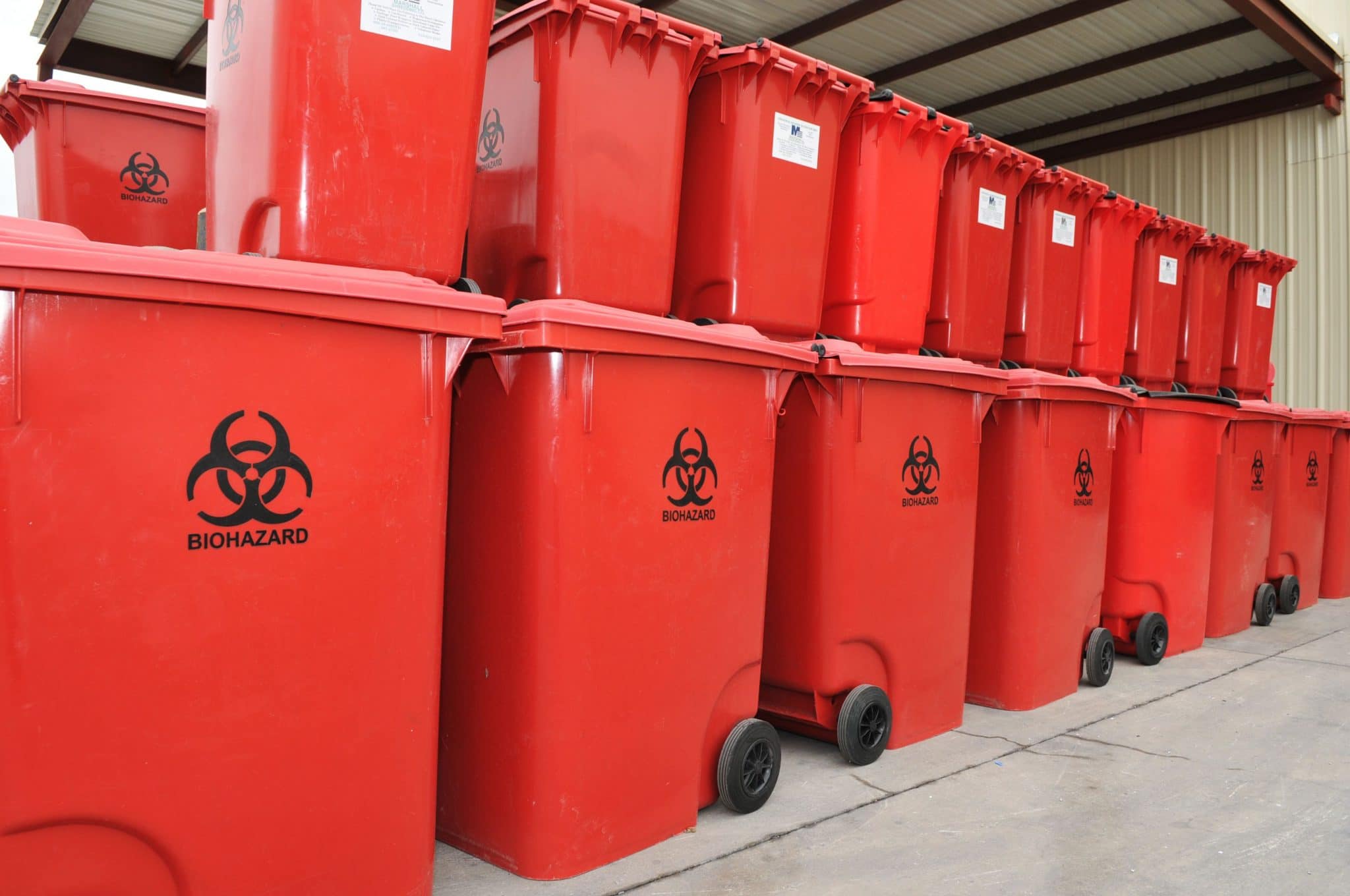Comprehensive Medical Waste Disposal Services for Healthcare Facilities
Comprehensive Medical Waste Disposal Services for Healthcare Facilities
Blog Article
Navigating Medical Waste Disposal: Necessary Providers for Medical Care Facilities
Medical care centers, whether huge hospitals or little clinics, are entrusted with the obligation of handling, dealing with, and disposing of a wide selection of medical waste streams. Understanding the important solutions that support clinical waste disposal is not just an issue of conformity however additionally a basic part in protecting public wellness and environmental wellness.
Regulatory Conformity Support
For medical care centers, guaranteeing regulatory conformity assistance is necessary to maintain proper handling and disposal of medical waste. Following regulations set forth by companies such as the Epa (EPA) and the Occupational Security and Wellness Management (OSHA) is essential to avoid environmental contamination, secure public wellness, and avoid possible legal effects. Governing conformity support offers health care centers with advice on just how to appropriately set apart, shop, transportation, and throw away different kinds of clinical waste according to neighborhood, state, and government regulations. This support includes assistance in creating and implementing detailed waste monitoring strategies, performing normal staff training sessions, and performing audits to guarantee ongoing compliance. By partnering with regulative compliance professionals, health care centers can stay up-to-date on advancing regulations, mitigate threats connected with improper garbage disposal, and eventually add to a safer and more lasting environment for all.
Waste Partition Support

Healthcare facilities should offer clear standards and training to team on how to set apart waste successfully. This includes separating basic waste from harmful materials such as sharps, infectious waste, drugs, and chemical waste. Color-coded bins, tags, and signs are commonly made use of to aid in waste partition techniques. Normal audits and tracking of waste segregation procedures are vital to determine any concerns and make required renovations.
Collection and Transport Providers

Appropriate collection and transport solutions are crucial components of the clinical garbage disposal procedure in health care facilities. These services guarantee that unsafe materials are dealt with safely and in compliance with regulations to secure both the environment and public wellness. Medical care centers rely upon specialized waste management business to provide effective collection and transport services tailored to their requirements.
Medical waste collection entails setting apart different types of waste at the point of generation, utilizing color-coded containers or bags to compare basic, dangerous, pharmaceutical, and other waste streams. Trained workers must perform this job to stop contamination and make certain correct disposal. As soon as gathered, the waste is delivered in specialized lorries geared up to manage harmful products safely. These cars comply with stringent security requirements and comply with marked paths to licensed treatment facilities for disposal with approaches such as incineration, sanitation, or landfilling.
Treatment and Disposal Solutions
In the world of medical garbage disposal for medical care facilities, after the vital stage of collection and transport services, the focus shifts in the direction of executing effective treatment and disposal remedies. Therapy remedies often involve processes such as autoclaving, which uses heavy steam under stress to sterilize the waste. This method my latest blog post is frequently used for contagious waste that should be rendered non-hazardous before disposal. One more prevalent therapy approach is incineration, where waste is subjected to high temperature levels in regulated setups to lower its quantity and get rid of microorganisms.
Disposal remedies incorporate the final action in the medical waste management process. Reusing and resource healing are likewise obtaining traction as sustainable disposal alternatives for certain types of medical waste read what he said materials.
Efficient treatment and disposal remedies are extremely important in guaranteeing compliance with guidelines and safeguarding public health and wellness and the setting. Medical care facilities should very carefully assess and pick appropriate techniques that line up with their waste administration goals and sustainability efforts.
Personnel Training and Education

To successfully manage medical waste disposal in medical care centers, extensive personnel training and education and learning play a vital role in making certain adherence to governing demands and maintaining a secure atmosphere. Correct training outfits team with the understanding and abilities needed to manage different types of clinical waste, segregate them properly, and package them securely for disposal. By enlightening staff members on the risks connected with inappropriate handling of clinical waste, centers can minimize the likelihood of accidents, contamination, and governing violations.

Conclusion
Finally, healthcare centers rely on necessary clinical garbage disposal services to guarantee regulatory conformity, appropriate waste segregation, safe collection and transport, reliable treatment and disposal, as well as personnel training and education. These solutions play a vital function in maintaining the health and wellness of both medical care employees and the public, highlighting the importance of correct monitoring of clinical waste in health care settings.
For healthcare web link facilities, guaranteeing regulatory compliance assistance is important to maintain proper handling and disposal of clinical waste. Waste partition includes classifying various types of clinical waste to guarantee appropriate handling, therapy, and disposal. This consists of separating general waste from harmful products such as sharps, infectious waste, pharmaceuticals, and chemical waste.Clinical waste collection includes segregating various types of waste at the point of generation, making use of color-coded bins or bags to differentiate between basic, dangerous, pharmaceutical, and other waste streams.In the world of medical waste disposal for healthcare centers, after the essential stage of collection and transport solutions, the emphasis changes in the direction of implementing efficient therapy and disposal solutions.
Report this page